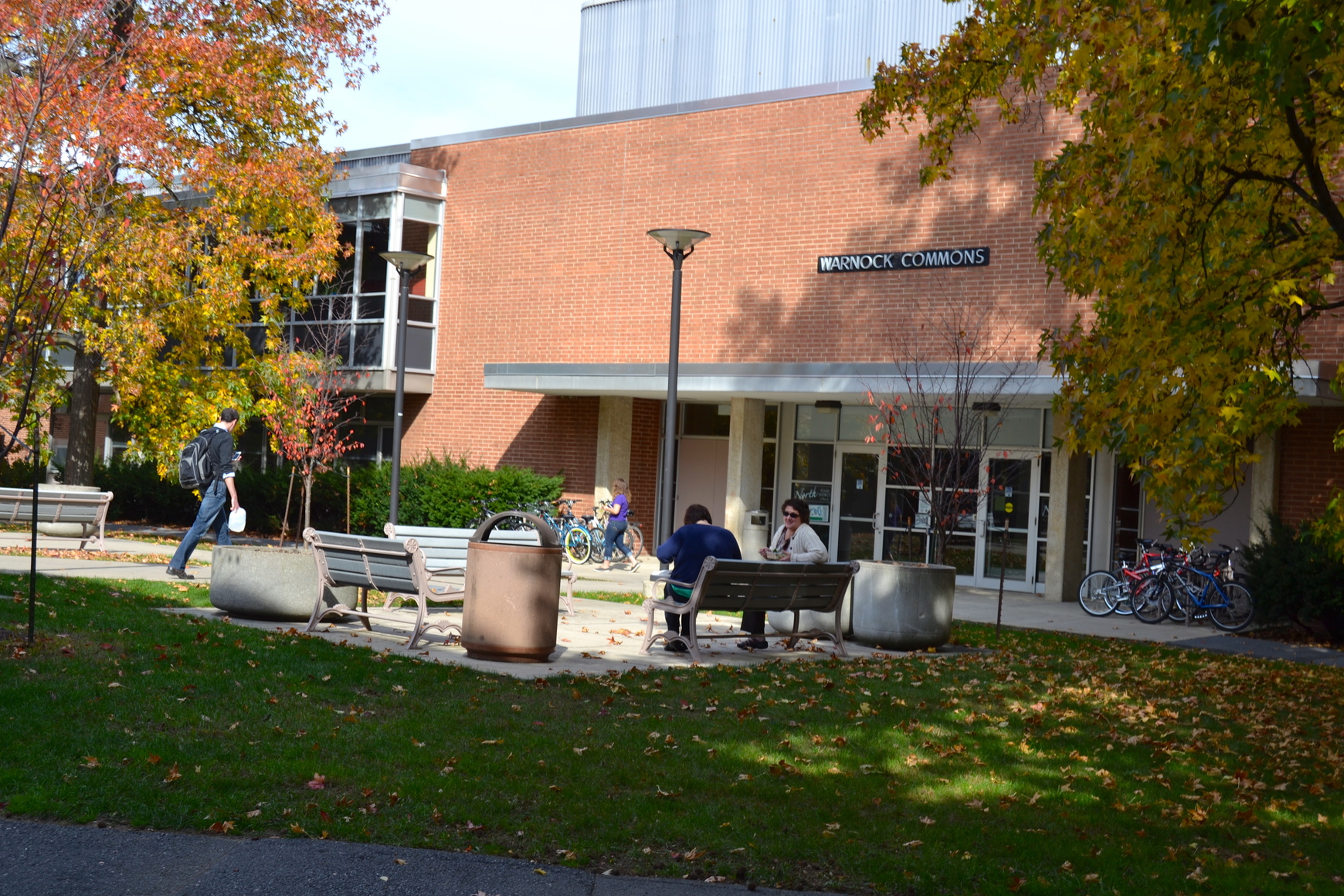Gloria Steinem Wraps Up Domestic Violence Awareness Month With Passionate Lecture At Schwab Auditorium

Gloria Steinem, a writer, lecturer, political activist, and feminist organizer, spoke to an eager crowd at Schwab Auditorium on Wednesday as part of SPA’s Fall Distinguished Speaker Series. On behalf of Penn State’s Center for Women Students in recognition of Domestic Violence Awareness Month, Steinem spoke passionately about issues of equality like sexism and racism, and eventually opened the floor for questions and discussion.
Steinem began the evening with a reference to the current election cycle: “I think that we are meeting at a particular time in history, and yes we will get to talk about the election if we want to, but I’m going to try and keep it from devouring us completely. Although, of course, everything we are talking about here is relevant and at stake in this election.”
After the brief caveat, Steinem outlined the progress that’s been made over the years in the name of equal rights. With cheers erupting from the audience, she called for a new generation to continue the movement. “These changes are not instantaneous,” Steinem said. “We need to understand that we are not just in this for a little while; we are in this for life.”
Steinem optimistically spoke about how the movements fighting for equality in the United States and throughout the world are finally coming together to recognize they are all connected. Following this proclamation, Steinem reflected on domestic violence. She told an immersed crowd that during her childhood, there was no word for domestic violence — it was simply called life. If a woman was beat up by her husband, the general consensus said it was her own fault and no one else’s business. Domestic violence situations were rarely attended to unless there were hospitalizations, and even then, the system was flawed. Reflecting on how laws in the United States have changed, Steinem said, “Age prevents you from being a pessimist, because you remember when it was worse.”
Steinem discussed at length how reproduction has historically been used to control population and to maintain social constructs like racial differences, gender differences, and class differences. “If you arrive at a political system where one group controls reproduction, it can’t be done without violence or the treat of violence, and that’s where we got this problem of domestic violence from,” she said, “and from there all kinds of other problems emerge.”
One example Steinem cited is the issue of sexual violence on college campuses. She associated the idea of masculinity (and the power that often accompanies it) with a drug some people get hooked on. According to Steinem, there’s a whole group of negative situations that arise from “supremacy problems” like domestic violence and racism.
“These crimes by and large don’t bring anybody profit. When a man is abusive to his wife, he is not getting money out of this and he is not bettering his situation. He’s doing it to remain in control because he is hooked on masculinity. This is true of racism, too. Racism is a supremacy problem.”
Steinem detailed what these problems mean for humanity. She explained how a history of violence toward women can predict a whole plethora of other forms of violence using the example of George Zimmerman, who had a history of violence toward women before the shooting of Trayvon Martin.
Additionally, Steinem brought up the recent issue of police violence in the United States. She said the families of police officers experience about four times the amount of domestic violence compared to families in the at-large population. According to Steinem, these connections are “logical, practical, and important, and they are just not being made.” Globally, the biggest indicator of violence in a country is not poverty, religion, or even degree of democracy. It’s violence against women.
Eventually, Steinem got to the quote that would define the rest of the night: “Human beings are way more linked than ranked.”
Steinem cited this year’s election cycle as a moment of backlash and anger in America’s history. However, she ended her lecture by saying, “This country is going to be free. We’re not turning back,” — a statement met with thunderous applause.
Your ad blocker is on.
Please choose an option below.
Purchase a Subscription!




